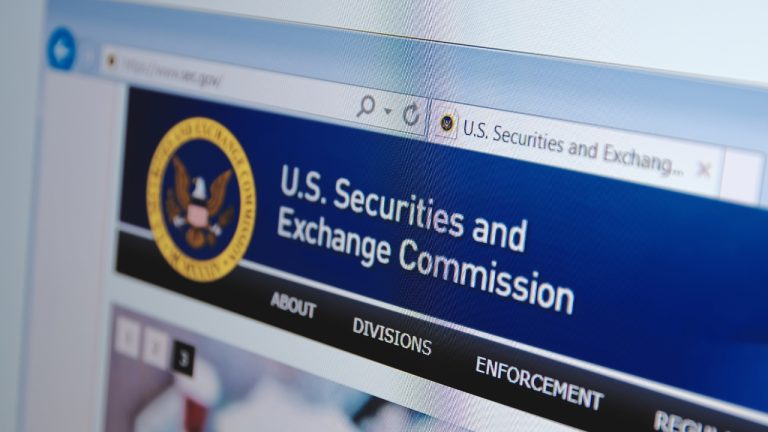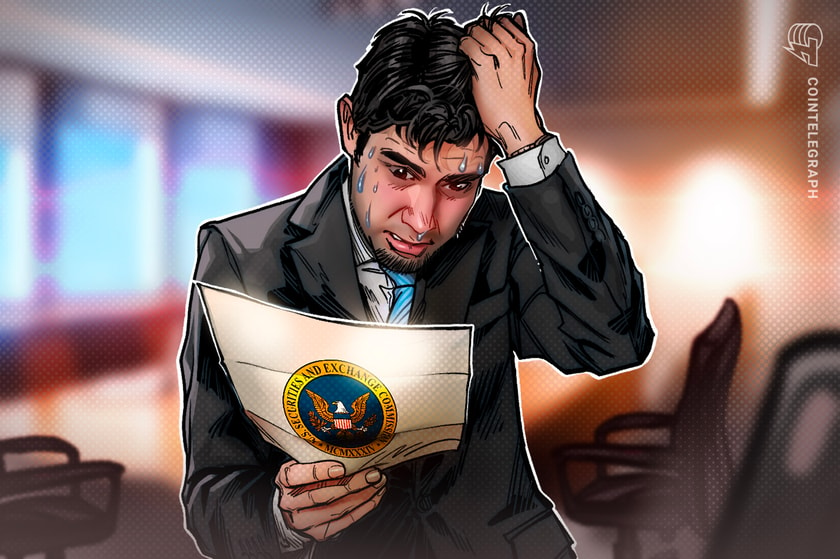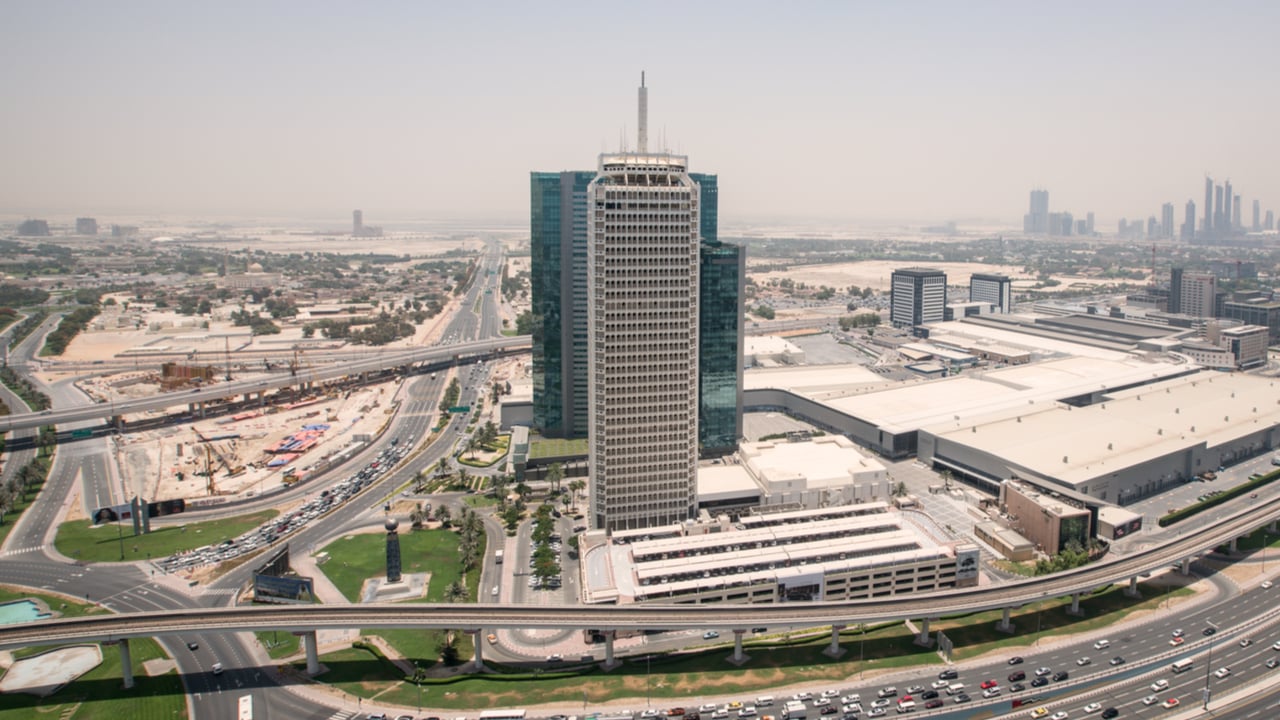 Marathon Digital Holdings, a publicly-listed bitcoin mining company, has recently revealed that it was served with a subpoena by the U.S. Securities and Exchange Commission (SEC) in relation to an investigation concerning the firm’s Montana mining facility. The SEC is reportedly looking into potential violations of federal securities law. Marathon’s Montana Mining Facility Under SEC […]
Marathon Digital Holdings, a publicly-listed bitcoin mining company, has recently revealed that it was served with a subpoena by the U.S. Securities and Exchange Commission (SEC) in relation to an investigation concerning the firm’s Montana mining facility. The SEC is reportedly looking into potential violations of federal securities law. Marathon’s Montana Mining Facility Under SEC […]
The first subpoena was given to Marathon in the third quarter of 2021, concerning whether it may have violated federal securities laws relating to its data center in Hardin.
Bitcoin (BTC) miner Marathon Digital has disclosed that it received another subpoena from the United States Securities and Exchange Commission relating to its 100-megawatt data center in Hardin, Montana.
According to Marathon’s quarterly report filed May 10, it received the subpoena on April 10 “relating to, among other things, transactions with related parties” that occurred while it was creating the facility in Montana, adding:
“We understand that the SEC may be investigating whether or not there may have been any violations of the federal securities law. We are cooperating with the SEC.”
The subpoena is the second one received by Marathon regarding the facility. It also received one late in the third quarter of 2021 in which the SEC ordered the firm to produce a number of related documents and communications.
@SECGov has issued another subpoena to Marathon Digital.
— CryptoSmind (@SmindCrypto) May 11, 2023
Marathon Digital is a US based #Bitcoin mining firm.
The subpoena relates to ongoing investigation tied to Marathon Digital facility in Montana.
Marathon stated that #SEC may be investigating whether or not there have…
A Marathon spokesperson declined to provide any additional comments.
Related: Bitcoin ‘under siege’ by BRC-20 coins as fees soar, claims analyst
On May 9, Marathon announced that it had partnered with digital assets infrastructure company Zero Two to create a large-scale immersion Bitcoin mining facility in Abu Dhabi.
The facility would consist of two mining mines with a combined 250-megawatt capacity, and Marathon noted that while mining in Abu Dhabi would normally be infeasible, its “custom-built immersion solution” would be sufficient to ensure the mining rigs remained cool.
The announcement came just two months after the Biden administration proposed a new tax for crypto miners operating in the U.S., which would require them to pay a tax equal to 30% of the cost of any electricity used while mining for crypto.
Magazine: $3.4B of Bitcoin in a popcorn tin — The Silk Road hacker’s story

Venom Ventures Fund is allocating $1 billion to invest in Web3, blockchain and cryptocurrency projects and services.
Abu Dhabi-based blockchain platform Venom Foundation and investment manager Iceberg Capital announced they will allocate $1 billion of funding to Web3 and blockchain firms through a new partnership.
The Venom Ventures Fund is set to invest in protocols and Web3 decentralized applications (DApps) focused on payments, asset management, decentralized finance (DeFi) and GameFi products and services.
The fund is a partnership between layer-1 blockchain solution, Venom Foundation and Abu Dhabi Global Market (ADGM) investment management firm, Iceberg Capital. The latter will look to leverage its existing network to offer incubation programs and industry connections as well as marketing, exchange listing and technical, legal and regulatory support.
Related: UAE regulator adopts blockchain to speed up commercial judgments
Iceberg Capital will manage the fund, investing in projects and companies through pre-seed and Series A funding rounds. The partnership aims to accelerate businesses developing blockchain, DeFi and Web3 products and services.
In response to questions from Cointelegraph, Venom Ventures chairman Peter Knez said that the Venom Foundation, its founders and regional institutional and private investors had seeded capital for the fund. The fund will support companies and projects with a global footprint and is not limited to Abu Dhabi-based firms.

The investment fund will look to attract startups and technology firms to use Venom’s scalable, proof-of-stake-based blockchain solution. Knez highlighted key services that could operate on top of its ADGM-regulated blockchain:
“Payment systems, central bank digital currencies (CBDC), stablecoins and remittance are core services that Venom can provide a solution for due to our unique blend of technology and enterprise.”
Knez also believes that the platform could power a multitude of use cases, highlighting the potential for micropayment solutions driving Web3 business models and financial inclusion:
“Venom has a vision where developing countries can participate in western countries’ labor markets.”
Abu Dhabi continues to make moves to become a cryptocurrency and blockchain hub in the Middle East. The capital of the United Arab Emirates published regulatory guidelines for the industry in September 2022 under the purview of the ADGM.
Over 1,500 Web3 businesses and organizations reportedly operate in the UAE, while Abu Dhabi continued to grant licenses to cryptocurrency exchanges throughout 2022, including Binance and Kraken.

Red Bull Racing will close out a successful Formula 1 season with an NFT emblazoned on both drivers’ vehicles at the Abu Dhabi Grand Prix.
Cryptocurrency and blockchain technology firms continue to feature in the world of Formula 1, with a nonfungible token (NFT) making its mark on Red Bull Racing’s vehicles to close out the 2022 calendar.
Red Bull Racing dominated the F1 season, topping the constructors’ standings, while Max Verstappen closed out the drivers’ standings for a second consecutive season. With the curtain closing on 2022’s race schedule in Abu Dhabi on Nov. 20, the team’s cars will feature an NFT on their livery in what is being called a first in F1.
Red Bull Racing struck a deal with cryptocurrency exchange ByBit as a Principal Team Partner in February 2022, one of a handful of cryptocurrency firms sponsoring teams in Formula 1. The exchange’s logo will feature alongside Lei the Lightning Azuki, an NFT artwork and character from the anime-inspired Azuki collection.
The original Lei Azuki NFT is one of 10,000 NFTs from the collection. The #8494 is currently listed on OpenSea and is valued at around 9 Wrapped Ether (wETH), or $11,100 at the time of writing.
Related: Merch and perfume: Formula One trademark filing paves the way for F1 NFTs
Red Bull Racing’s Lei the Lightning Azuki will be a limited edition version of #8494 and is set to be minted on the Tezos blockchain and available through ByBit’s NFT marketplace.
A statement from Red Bulls Racing’s team principal, Christian Horner, highlighted the ongoing exploration of Web3 use cases through the partnership in the sporting world
“In many ways, it’s been an eye opener for us to the vast opportunities Web3 has to offer. This unique project is the perfect combination of creativity, innovation, and passion which matches our ethos on the track.”
The sport of Formula 1 has been a big proponent of the cryptocurrency space. Crypto.com signed a major sponsorship deal in June 2021 as its official cryptocurrency and NFT partner. Fan token blockchain platform Chiliz has also partnered with a handful of F1 teams over the past two years.
McLaren became the first team to carry out a ‘livery takeover’ with their main sponsor OKX in 2022. Cointelegraph had an exclusive interview with Australian driver Daniel Ricciardo about the partnership at Token2049 in Singapore in October 2022.
Formula 1 also filed a number of trademark applications in October 2022 that suggest that the organization is looking to take full control of the intellectual property in the wider cryptocurrency space.

UAE’s capital city of Abu Dhabi has granted Binance permission to offer financial services, the latest in a series of regulatory approvals for the exchange in the Middle East.
Abu Dhabi’s Global Market (ADGM) and Financial Services Regulatory Authority have granted cryptocurrency exchange Binance clearance to offer its services in the region.
An official announcement from the United Arab Emirates capital’s financial center confirmed that Binance will be cleared to offer cryptocurrency custodial services to professional clients once it has met the requirements for its Financial Services Permission.
The news came after Binance founder and CEO Changpeng Zhao attended the Abu Dhabi Finance Week. Zhao appeared onstage alongside Galaxy Digital CEO and investor Mike Novogratz at the event for a wide-ranging conversation that touched on the aftermath of the ongoing FTX bankruptcy.
Binance had already gained a foothold in Abu Dhabi after being granted in-principle approval from ADGM in April 2022. This gave the exchange the go-ahead to operate as a broker-dealer for cryptocurrencies and digital assets.
Related: FTX debacle sees Nansen take stock of major exchange on-chain holdings
While Binance looks set to begin offering its exchange services to customers in Abu Dhabi, the announcement had its detractors. Chief among those was economist and cryptocurrency critic Nouriel Roubini, who made disparaging remarks about the regulatory clearance afforded to Binance during a separate panel at the Abu Dhabi Finance Week.
"This is an ecosystem that is totally corrupt... I can't believe @cz_binance has a license to operate in the UAE," @Nouriel tells CNBC's @dan_murphy on stage at Abu Dhabi Finance Week. pic.twitter.com/3BGEMfx7zc
— CNBC Middle East (@CNBCMiddleEast) November 16, 2022
Roubini argued that Binance being banned in the United Kingdom and ongoing investigations by the United States Department of Justice suggests the exchange is a “walking timebomb”:
“Unfortunately, this is an ecosystem that is totally corrupt. I think this is a lesson from the last few weeks, and I think these people should be out of here. I can’t believe [Zhao] and Binance has a license to operate in the UAE.”
Binance has had an intriguing role to play amid the implosion of Sam Bankman-Fried’s FTX empire. Zhao held initial talks with his competitor to bail out FTX, but closer scrutiny of the company’s financials saw the deal fall through before FTX filed for bankruptcy.
Binance then led a movement followed by a number of prominent exchanges to provide proof-of-reserves of cryptocurrency asset holdings. The exchange has also set up an industry recovery fund aimed at providing financial support to exchanges and projects facing liquidity issues.
Binance has received a number of regulatory approvals in different countries in 2022, with Dubai giving the all-clear in September 2022. This followed the exchange receiving regulatory clearance to offer its services in Bahrain in March 2022.

The emirate’s special economic zone might grant licensed exchanges the right to trade nonfungible tokens.
Abu Dhabi Global Market (ADGM), the emirate’s free zone, published a consultation paper on March 21 titled “Proposals for enhancements to capital markets and virtual assets in ADGM.” The document contains draft guidelines that, among other asset classes, cover nonfungible token (NFT) trading. The paper proposes that companies with a license from the free zone’s financial regulator be allowed to facilitate NFT trading.
Along with sections dedicated to traditional financial instruments, the document contains a little more than a page on virtual assets and NFTs. In this section, the free zone’s chief regulator, the Financial Services Regulatory Authority (FSRA), describes NFTs as intellectual property rather than “specified investments or financial instruments.” It also proposes to allow multilateral trading facilities (MTFs) and Virtual Asset Custodians (VAC) to operate NFT marketplaces.
Related: The crypto oasis: How the UAE became the Middle East’s digital asset champion
The document also mentions that transactions in NFTs may trigger the requirement to comply with ADGM’s Anti-Money Laundering (AML) and Sanctions Rules.
At this point, as the document specifies, FSRA is not proposing a formal regulatory framework for NFTs. The consultation paper is open for comment until May 20, and encourages stakeholders to share their thoughts on several major questions, for example, “What types of NFTs should be permitted to trade upon MTFs?” and “How would it be best to integrate third-party NFT registries?”
ADGM is one of the United Arab Emirates' three major free economic zones that host virtual asset service providers (VASPs), and the first one to get its regulatory framework back in 2018. Last week, though, it was the UAE’s another free zone — Dubai Multi Commodities Centre (DMCC) — that made the headlines by granting its freshly legislated crypto license to FTX and Binance exchanges.
 A carpet presented by the United Arab Emirates as a gift to the head of the Catholic Church a few years ago has been sold in the form of NFT. While the original remains in the Vatican, its digital representation has been successfully used to collect funds for the people of Afghanistan. NFT of Historic […]
A carpet presented by the United Arab Emirates as a gift to the head of the Catholic Church a few years ago has been sold in the form of NFT. While the original remains in the Vatican, its digital representation has been successfully used to collect funds for the people of Afghanistan. NFT of Historic […] The Dubai World Trade Centre will become a comprehensive ecosystem for cryptocurrencies and providers of related services. The move is part of efforts to support new industries and the emirate intends to source help from crypto companies like Binance. Dubai World Trade Centre to Host and Regulate Crypto Space Authorities in the United Arab Emirates […]
The Dubai World Trade Centre will become a comprehensive ecosystem for cryptocurrencies and providers of related services. The move is part of efforts to support new industries and the emirate intends to source help from crypto companies like Binance. Dubai World Trade Centre to Host and Regulate Crypto Space Authorities in the United Arab Emirates […]